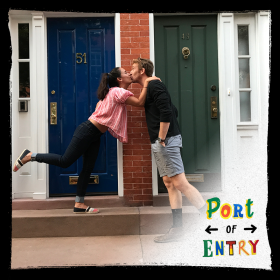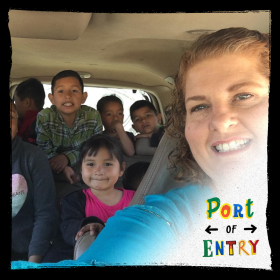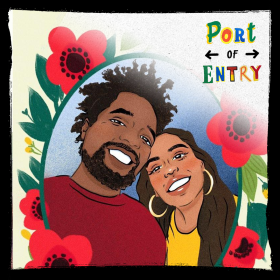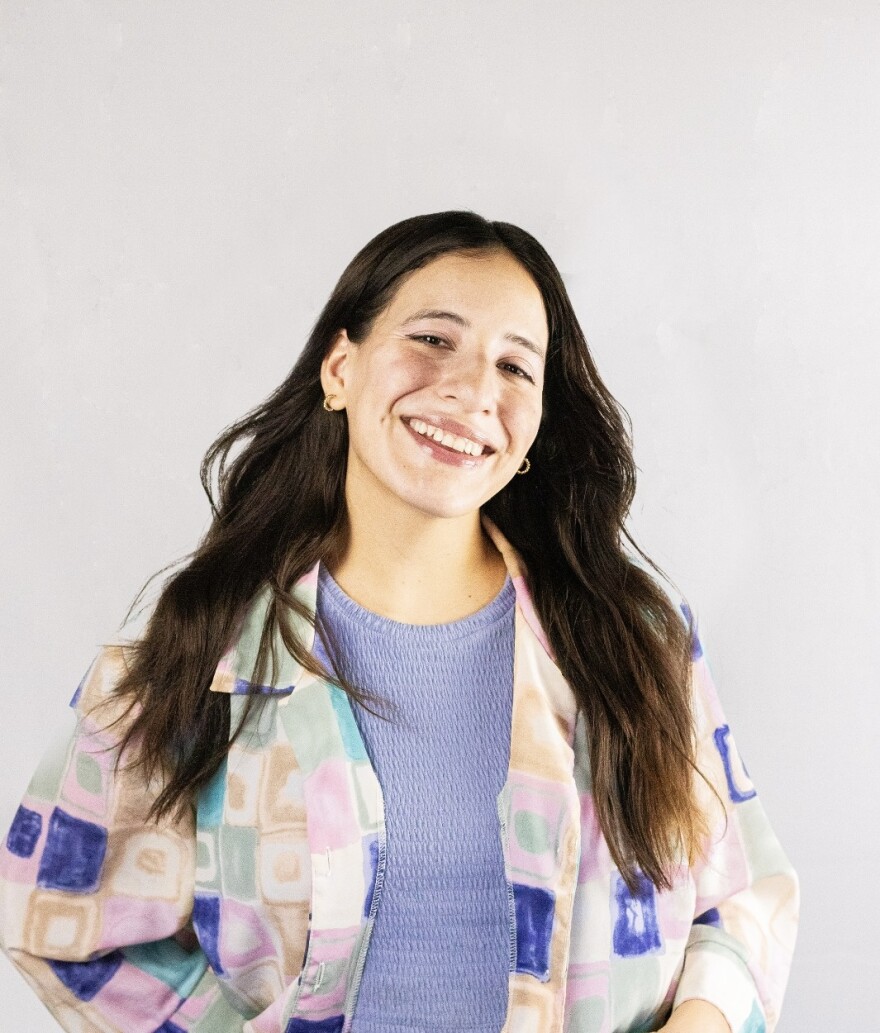Port of Entry
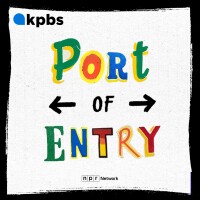
These are cross-border stories that connect us. Border people often inhabit this in-between place. From KPBS and California Humanities, “Port of Entry” tells personal stories from this place — stories of love, hope, struggle, and survival from border crossers, fronterizxs, and other people whose lives are shaped around the wall. Rooted in San Diego and Tijuana, we are a transborder podcast for transborder people. We live life on la linea.
Have you checked out our podcast in Spanish? If so, Take our survey.
¿Hás escuchado nuestro podcast en Español? Participa en nuestra encuesta.
Ways To Subscribe
-
We continue our series on medical tourism at the border with a story about a plus-size model who’s proud of her big body, but has health issues that lead her to undergo weight-loss surgery in Tijuana, where it's more affordable. It’s a story about beauty and health and how a young woman is carving out her own corner of the world, creating a space where she fits in, no matter what size or shape or how she got there.
-
A California couple tries one more time to have a baby by crossing the border and getting fertility treatment in Tijuana. It’s a story about the lengths you’ll go through when the future you envisioned is suddenly out of reach.
-
We’re continuing our series on medical tourism at the border with a story about two women and their journeys to find more affordable insulin in Tijuana. It’s really a story about the fine line between life and death; the balancing act people with diabetes have to navigate every single day; and how crossing the line between the U.S. and Mexico can be a life raft. Follow “Port of Entry” online at www.portofentrypod.org, or on Facebook (www.facebook.com/portofentrypodcast) or Instagram (www.instagram.com/portofentrypod). Editor’s Note: An earlier version of this podcast did not clarify that Erin’s savings card works only after she’s paid out her insurance deductible.
-
From KPBS and PRX, “Port of Entry” is launching a new series on medical tourism at the border today. Up first: We follow a San Diego woman as she crosses the border for alternative cancer treatments in Tijuana. This isn’t an investigation into the efficacy of alternative cancer treatments. Instead, it’s a story about one woman’s cross-border experience and her own personal convictions. Follow “Port of Entry” online at www.portofentrypod.org, or on Facebook (www.facebook.com/portofentrypodcast) or Instagram (www.instagram.com/portofentrypod). Support our work at www.kpbs.org/donate. Search “Port of Entry” in the gifts section to get our sling bag as a thank-you gift. If your business or nonprofit wants to sponsor our show, email podcasts@kpbs.org. Text or call the "Port of Entry" team at 619-452-0228 anytime with questions or comments about the show.
-
Our local Latinx community has been hit hard by the pandemic; disproportionately hard. In today’s special episode, we share one border family’s battle with COVID-19. They explain how they’re using their story to help other Mexican-American families like theirs. It's a story about trust, and how living at the border can mean living in a place where trust sometimes requires translation.
-
In these “Border Voices” bonus episodes, we feature shorter stories spotlighting people who identify as transborder, fronterizx or simply have something to say about how the U.S.-Mexico border has changed their lives. Today, meet Danya Gresham, an American expat who left behind her life in the U.S. so she could help take care of orphaned kids in Mexico.
-
In these “Border Voices” bonus episodes, we feature shorter stories spotlighting people who identify as transborder, fronterizo or simply have something to say about how the U.S.-Mexico border has changed their lives. Today, meet Jesse Daner and Pamela Figueroa, a cross-border couple who met through their love of learning languages. Episode art by Dani Cortez. Follow “Port of Entry” online at www.portofentrypod.org, or on Facebook (www.facebook.com/portofentrypodcast) or Instagram (www.instagram.com/portofentrypod). Support our work at www.kpbs.org/donate. Search “Port of Entry” in the gifts section to get our sling bag as a thank-you gift. If your business or nonprofit wants to sponsor our show, email podcasts@kpbs.org. Text or call the "Port of Entry" team at 619-452-0228 anytime with questions or comments about the show.
-
Ramón Amezcua, better known as Bostich of Nortec Collective, is famous for blending the classic norteña sounds of Tijuana with electronic music. But making music and touring the world wasn’t always the plan for Ramon. He studied and practiced dentistry, and he thought he'd be filling cavities his whole life. Instead, he became one of the most influential pioneers of electronic music in Mexico. In our recurring “Moved by Music” series, we explore some of the futuristic synths and drum machines that set young Ramon’s imagination on fire back in the 70s, the synth pop he we was digging for at record stores in the 80s, and the artists that inspired him in the 90s when he was playing raves all across Mexico. Listen to Ramon’s projects on his family’s record label: www.milovat.org Follow “Port of Entry” online at www.portofentrypod.org, or on Facebook (www.facebook.com/portofentrypodcast) or Instagram (www.instagram.com/portofentrypod). Support our work at www.kpbs.org/donate. Search “Port of Entry” in the gifts section to get our sling bag as a thank-you gift. If your business or nonprofit wants to sponsor our show, email podcasts@kpbs.org. Text or call the "Port of Entry" team at 619-452-0228 anytime with questions or comments about the show
-
We wrap up our series of cross-border love stories with a woman who totally changed her life; dropping what she was doing so she could help take care of some of the border region’s most vulnerable kids instead. It’s a story about kids in need of love, and one woman’s work to turn her own personal pain into power and purpose. Connect with Corazon de Vida: www.corazondevida.org Follow “Port of Entry” online at www.portofentrypod.org, or on Facebook (www.facebook.com/portofentrypodcast) or Instagram (www.instagram.com/portofentrypod). Support our work at www.kpbs.org/donate. Search “Port of Entry” in the gifts section to get our sling bag as a thank-you gift. If your business or nonprofit wants to sponsor our show, email podcasts@kpbs.org. Text or call the "Port of Entry" team at 619-452-0228 anytime with questions or comments about the show
-
Our series on cross-border love stories continues. Today, two families separated by deportation share stories about how their love keeps them connected despite the border wall between them. Episode art by @Deportedartist: https://www.instagram.com/deportedartist Follow “Port of Entry” online at www.portofentrypod.org, or on Facebook (www.facebook.com/portofentrypodcast) or Instagram (www.instagram.com/portofentrypod). Support our work at www.kpbs.org/donate. Search “Port of Entry” in the gifts section to get our sling bag as a thank-you gift. If your business or nonprofit wants to sponsor our show, email podcasts@kpbs.org. Text or call the "Port of Entry" team at 619-452-0228 anytime with questions or comments about the show
Alan Lilienthal is a musician and the co-host of “Port of Entry,” a KPBS podcast about cross-border culture and the people who shape it. His life’s mission is to melt borders and celebrate our shared humanity through art.
Natalie Gonzalez is the co-host of ‘’Port of Entry” — a KPBS podcast. The podcast covers stories about cross-border people whose lives have been shaped by Tijuana and San Diego. Natalie is also a theater actress from Tijuana Hace Teatro. She studied at Universidad Iberoamericana in Tijuana where she graduated from Communications and Media School.
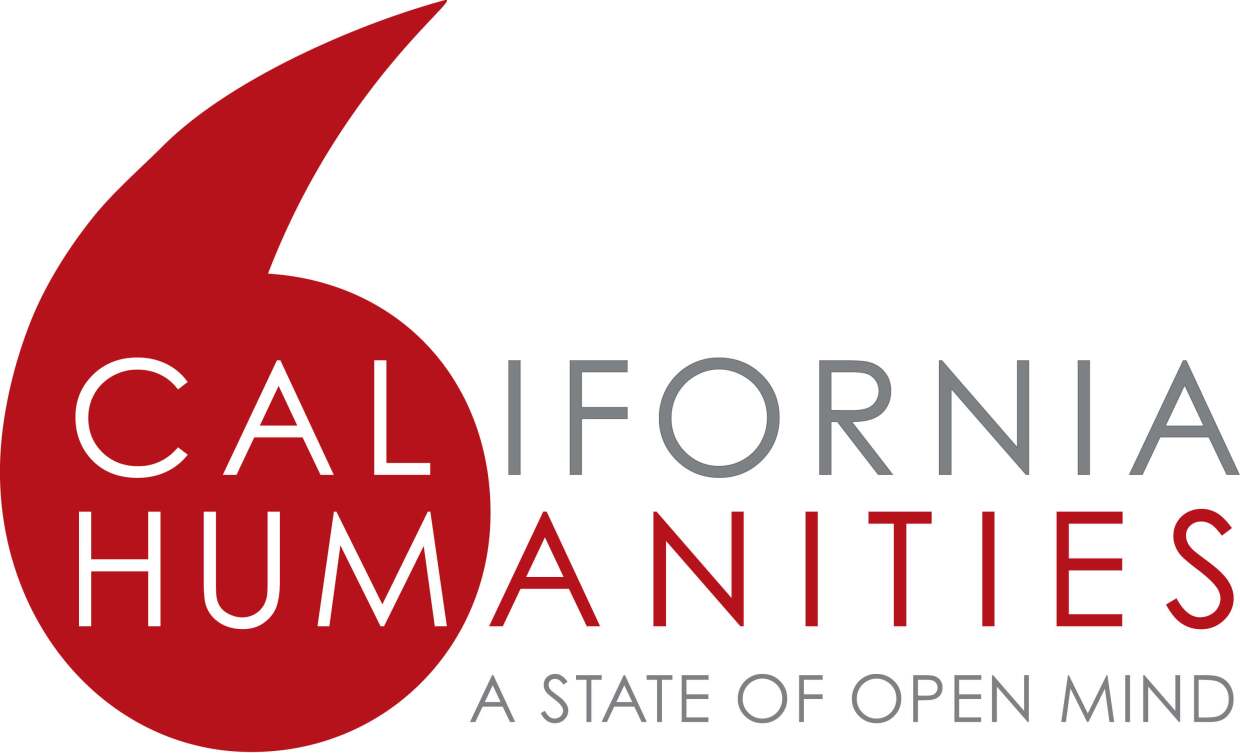
This project was made possible in part with support from California Humanities, a non-profit partner of the National Endowment for the Humanities. Visit calhum.org.


